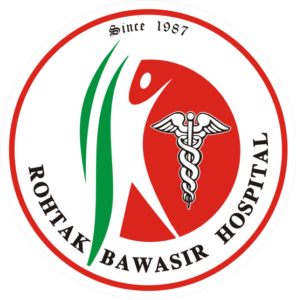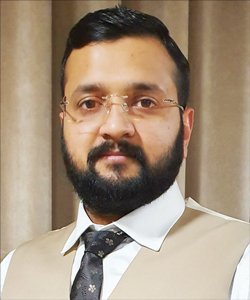Piles Treatment – Home Remedies and Medication, Laser Treatment for Piles


Updated on: 4th Jun 2024
Haemorrhoids, or piles, are enlarged, inflammatory veins in the rectum and anus that can hurt and cause discomfort. Fortunately, there are a number of efficient therapies available, ranging from sophisticated medical procedures like laser treatment for piles to do-it-at-home alternatives. The severity of the ailment, personal preferences, and medical recommendations all play a role in the treatment decision.
Laser Treatment for Piles
A state-of-the-art medical procedure called laser treatment for piles, often referred to as laser hemorrhoidoplasty or laser hemorrhoidectomy, is intended to alleviate the pain and discomfort associated with hemorrhoids, or piles.
Swollen blood vessels in the anal and rectal regions are known as hemorrhoids, and they can cause pain, bleeding, itching, and general discomfort. Although there are a number of therapies for hemorrhoids, laser treatment has become more and more popular because of its successful results and minimally intrusive nature.
Procedure of Laser Treatment for Piles
Using concentrated laser energy, haemorrhoids’ enlarged blood vessels are targeted and shrunk as part of the piles laser therapy. This method is a flexible alternative for a range of situations because it can be used on both internal and external hemorrhoids.
Since the surgery is usually performed as an outpatient, patients can go home the same day. Patients usually remain conscious throughout the process, which is typically carried out under local anesthesia. This is the typical course of events:
Preparation: Usually resting on their sides, patients are positioned comfortably for the treatment. The treatment area has been cleansed and prepped.
Application of Laser Energy: The surgeon can precisely target the hemorrhoid tissue by inserting a specialized laser instrument into the rectum. The hemorrhoids’ size is decreased and the blood vessels are shrunk by the regulated bursts of laser radiation.
Sealing Blood Vessels: The laser energy helps to seal off the blood vessels, lowering the danger of bleeding, in addition to reducing the size of the hemorrhoids.
Preparation: Patients are positioned comfortably for the therapy, usually dozing on their sides. The treatment space is ready and has been cleaned.
Application of Laser Energy: By carefully aiming a specialized laser equipment into the rectum, the surgeon can target the hemorrhoid tissue. The controlled bursts of laser radiation cause the hemorrhoids to shrink and the blood vessels to constrict.
Sealing Blood Vessels: In addition to shrinking the size of the hemorrhoids, the laser energy aids in sealing up the blood vessels, minimizing the risk of bleeding.
Advantages of Laser Treatment for Piles

Minimally Invasive: Unlike conventional surgical techniques, laser therapy requires less tissue disruption and cutting, which results in reduced discomfort, edema, and scarring.
Decreased Bleeding: By carefully sealing blood arteries, the laser lowers the possibility of bleeding after surgery.
Fast Recovery: Patients can resume their regular activities sooner after a typical surgical procedure since they often heal more quickly.
Minimally Invasive: Unlike conventional surgical techniques, laser therapy requires less tissue disruption and cutting, which results in reduced discomfort, edema, and scarring.
Decreased Bleeding: By carefully sealing blood arteries, the laser lowers the possibility of bleeding after surgery.
Fast Recovery: Patients can resume their regular activities sooner after a typical surgical procedure since they often heal more quickly.
Considerations and Consultation
It’s crucial to speak with a licensed healthcare provider to find out if piles laser treatment is the best course of action for you. The degree of your ailment, general health, and medical background are some of the variables that determine whether this operation is appropriate for you.
Haemorrhoid therapy has advanced significantly with the introduction of laser treatment for piles. It is a desirable alternative for people looking for efficient treatment from the discomfort of hemorrhoids because to its minimally invasive nature, decreased discomfort, and speedy recovery. Always seek the advice of a medical professional to determine the best course of action for your unique situation.
Piles Treatment at Home
Dietary Adjustments: To lessen the discomfort associated with piles, a high-fiber diet can assist soften stools and ease strain during bowel movements. Good sources of dietary fibre include fruits, vegetables, whole grains, and legumes.
Hydration: Constipation, a primary cause of piles, can be avoided by consuming lots of water. Drinking enough water helps keep stools soft and reduces the discomfort of bowel motions.
Warm Sitz Baths: Itching, irritation, and inflammation related to piles can be reduced by soaking the anal region in warm water for ten to fifteen minutes.
Good Hygiene: Cleaning the anal region after every bowel movement helps to minimize inflammation. To clean the area, use damp toilet paper or gentle, unscented wipes.
Over-the-Counter Creams: Topical ointments or creams with hydrocortisone or other similar substances might offer momentary alleviation from discomfort and itching.
Piles Treatment Medicine

Oral Pain Relievers:
NSAIDs, or nonsteroidal anti-inflammatory drugs: NSAIDs available over-the-counter, such as ibuprofen and naproxen, can help lessen hemorrhoidal pain and inflammation. They can be helpful during flare-ups and offer momentary pain relief.
Acetaminophen: Although it lacks the anti-inflammatory qualities of NSAIDs, this analgesic can lessen the pain and suffering brought on by hemorrhoids.
Topical Medications
Creams containing hydrocortisone: These creams help lessen discomfort, inflammation, and itching because they include hydrocortisone, a moderate steroid. The afflicted area can receive them directly.
Lidocaine Creams: Topical lidocaine creams have a numbing effect that relieves discomfort and agony.
Witch Hazel Pads: To relieve inflammation and lessen discomfort, use these pads to the affected region soaked in witch hazel, a natural astringent.
Calamine Lotion: When applied topically, calamine lotion helps lessen irritation and itching.
Stool Softeners
Docusate Sodium: By softening the stools, stool softeners such as docusate sodium can help avoid straining during bowel movements. For those who suffer from hemorrhoids, this can be especially helpful because straining can exacerbate symptoms.
Herbal Supplements:
Butcher’s Broom: This herb may also help those with hemorrhoids by improving circulation and lowering vein inflammation.
Horse Chestnut: It is thought that certain herbal supplements, such as horse chestnut, might lessen inflammation and enhance blood circulation, which may help with hemorrhoid symptoms.
Prescription Medications:
Stronger Steroid Creams on Prescription: To treat symptoms of severe inflammation, a doctor may recommend a stronger steroid cream.
Prescription Painkillers: In order to treat extreme suffering, a doctor may recommend stronger painkillers if over-the-counter remedies are insufficient.
Considerations:
It’s crucial to speak with a healthcare provider before beginning any piles treatment drug, particularly if you have underlying medical concerns, are expecting or nursing a child, or are using other medications. They can assist in figuring out the best course of action for you given your unique circumstances.
It’s important to remember that although drugs can reduce symptoms, they could not treat the underlying cause of hemorrhoids. Modifications in lifestyle, such as eating a diet rich in fibre, drinking plenty of water, and avoiding lengthy periods of sitting, are also essential for controlling and preventing hemorrhoids.
Conclusion:
Pile treatment medications can be quite helpful in easing pain and accelerating healing for those who have hemorrhoids. The severity determines which treatment is best for piles. Topical treatments, hydration, and a high-fibre diet are beneficial in mild cases.
Herbal supplements, prescription medicines, or rubber band ligation may be necessary in moderate situations. In severe cases, laser therapy or hemorrhoidectomy may be necessary for both immediate relief and long-term resolution. Seeking medical advice and implementing a holistic strategy involving medication and lifestyle modifications might result in efficient treatment and alleviation of hemorrhoidal symptoms.
When to Seek Medical Help

While these tips can be effective for managing early-stage piles, it’s important to seek medical advice if:
- Symptoms persist or worsen despite home treatment.
- You experience significant pain or bleeding.
- You notice a lump near the anus that is painful or doesn’t go away.
At Rohtak Bawasir Hospital, our experienced team of specialists is dedicated to providing personalized care for piles and other anorectal conditions. We offer a range of treatment options, from conservative management to minimally invasive procedures, ensuring the best possible outcomes for our patients.
Conclusion
Curing piles at the first stage involves a combination of dietary changes, good bathroom habits, and over-the-counter treatments. By following these tips and seeking medical advice when necessary, you can effectively manage and cure early-stage piles. If you have any concerns or need professional help, don’t hesitate to contact Rohtak Bawasir Hospital for expert care and guidance.
For more information or to schedule an appointment, visit our website or call us at 74192-00009. Your health and comfort are our top priorities.
Meet Our Specialists

Dr. Raj Kumar Garg (B.A.M.S.)
40+ Years of Experience

Dr. Rahul Garg (B.A.M.S.)
15+ Years of Experience

